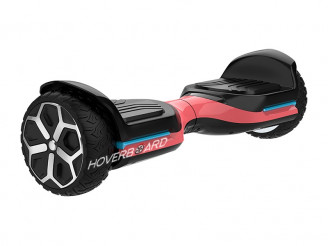Hoverboards, often referred to as self-balancing scooters, have become increasingly popular as an exciting and modern form of personal transport. However, it is essential for owners and prospective buyers to be aware of their legal status in the UK. This article offers a detailed examination of the current legal framework surrounding hoverboards in the United Kingdom as of May 9, 2025.
Ownership vs. Public Use: The Crucial Difference
In the UK, it is permissible to purchase, sell, and possess a hoverboard. There are no legal restrictions on acquiring or owning these devices. Nonetheless, it is vital to note the **strict regulations regarding where they can be legally ridden.**
Where is Riding a Hoverboard Prohibited?
According to existing UK legislation, it is unlawful to operate hoverboards on public roads, sidewalks, cycle paths, parks, shopping malls, and most other public spaces. This ban arises from hoverboards being classified as "Powered Transporters" or "Personal Light Electric Vehicles (PLEVs)," which are deemed motor vehicles under the Road Traffic Act 1988.
As motor vehicles, they must adhere to the same regulations as cars and motorcycles, including:
- Insurance: Hoverboards cannot be insured for road use because they do not comply with the required safety standards and vehicle construction regulations.
- Tax and Registration: Hoverboards cannot be registered or taxed due to their non-compliance with road vehicle standards.
- Driving Licence: There is no driving license category that includes hoverboards.
- Safety Standards: Hoverboards typically do not fulfill the technical standards necessary for road vehicles in the UK.
Additionally, operating any motor vehicle on a sidewalk is prohibited according to the Highway Act of 1835.
Where Is It Legal to Ride a Hoverboard?
The sole location where riding a hoverboard is legally permitted in the UK is on private property with the explicit consent of the landowner. This encompasses:
- Your personal garden or driveway.
- Private parks or estates with the owner's approval.
- Indoors within private premises.
Riding on commercially managed sites that have specific areas designated for hoverboard use may also be allowed, provided you have the consent of the landowner or operator.
Consequences for Illegal Riding
If you are found riding a hoverboard in a public area, you may face penalties akin to those for driving an uninsured vehicle. This could involve:
- Fines: You might incur a fixed penalty fine.
- Penalty Points: You might incur penalty points on your driving license, even if you don't possess one. Accumulating these points could eventually result in a driving ban.
- Vehicle Seizure: Law enforcement has the authority to confiscate your hoverboard.
Safety Considerations and Regulations
Although owning a hoverboard is permissible, prioritizing safety is crucial. Seek out hoverboards that have achieved safety certifications, such as UL 2272, which confirms the product has successfully passed stringent electrical and battery safety evaluations. Additionally, verify the presence of UKCA and CE marks, which indicate compliance with European health and safety standards.
When operating a hoverboard on private property, it is strongly advised to:
- Use suitable safety equipment, including a helmet, and consider wearing knee and elbow pads.
- Practice riding in a secure, open space free from obstacles.
- Stay alert to your environment and minimise distractions.
- Make sure the hoverboard is well-maintained and charged as per the manufacturer's guidelines.
- Always ensure a hoverboard is not left charging without supervision or near any flammable substances.
Comparison with E-scooters and E-bikes
It's important to highlight that private e-scooters in the UK are subject to the same legal limitations as hoverboards, making their use in public areas illegal. Nonetheless, rental e-scooters are permitted to operate legally within certain government-sanctioned trial zones, each governed by its own regulations.
Electrically Assisted Pedal Cycles (EAPCs) that fulfill specific requirements are regarded as standard bicycles and are legally allowed on roads.
The Future of Hoverboard Legislation
As of May 2025, there have been no legislative changes to allow the use of private hoverboards in public areas. Although the government has previously considered updating transport laws, there is no sign that hoverboards will be approved for public road use anytime soon. This is due to safety issues and their classification as motor vehicles that fail to meet the required standards.
Conclusion
To conclude, although owning a hoverboard in the UK is legal, its use is confined to private property with the landowner's consent. Operating hoverboards in public spaces like streets and sidewalks is against the law and may lead to fines. Ensuring safety by buying certified hoverboards and wearing protective equipment is essential when using your hoverboard on private land.




























